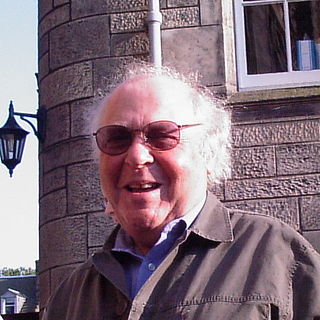
Marshall David Sahlins was an American cultural anthropologist best known for his ethnographic work in the Pacific and for his contributions to anthropological theory. He was the Charles F. Grey Distinguished Service Professor Emeritus of Anthropology and of Social Sciences at the University of Chicago.

Jean Paul Gustave Ricœur was a French philosopher best known for combining phenomenological description with hermeneutics. As such, his thought is within the same tradition as other major hermeneutic phenomenologists, Martin Heidegger, Hans-Georg Gadamer, and Gabriel Marcel. In 2000, he was awarded the Kyoto Prize in Arts and Philosophy for having "revolutionized the methods of hermeneutic phenomenology, expanding the study of textual interpretation to include the broad yet concrete domains of mythology, biblical exegesis, psychoanalysis, theory of metaphor, and narrative theory."
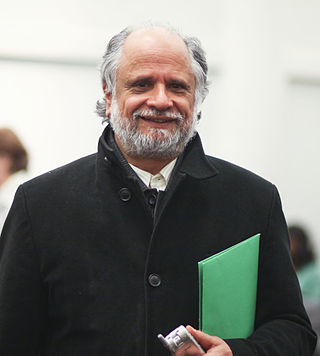
Homi Kharshedji Bhabha is an Indian scholar and critical theorist. He is the Anne F. Rothenberg Professor of the Humanities at Harvard University. He is one of the most important figures in contemporary postcolonial studies, and has developed a number of the field's neologisms and key concepts, such as hybridity, mimicry, difference, and ambivalence. Such terms describe ways in which colonised people have resisted the power of the coloniser, according to Bhabha's theory. In 2012, he received the Padma Bhushan award in the field of literature and education from the Indian government. He is married to attorney and Harvard lecturer Jacqueline Bhabha, and they have three children.
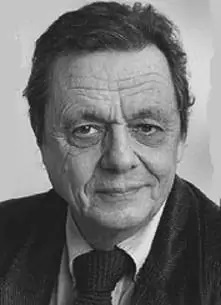
François Furet was a French historian and president of the Saint-Simon Foundation, best known for his books on the French Revolution. From 1985 to 1997, Furet was a professor of French history at the University of Chicago.

David Martin Bevington was an American literary scholar. He was the Phyllis Fay Horton Distinguished Service Professor Emeritus in the Humanities and in English Language & Literature, Comparative Literature, and the college at the University of Chicago, where he taught since 1967, as well as chair of Theatre and Performance Studies. "One of the most learned and devoted of Shakespeareans," so called by Harold Bloom, he specialized in British drama of the Renaissance, and edited and introduced the complete works of William Shakespeare in both the 29-volume, Bantam Classics paperback editions and the single-volume Longman edition. After accomplishing this feat, Bevington was often cited as the only living scholar to have personally edited Shakespeare's complete corpus.
Multilineal evolution is a 20th-century social theory about the evolution of societies and cultures. It is composed of many competing theories by various sociologists and anthropologists. This theory has replaced the older 19th century set of theories of unilineal evolution, where evolutionists were deeply interested in making generalizations.
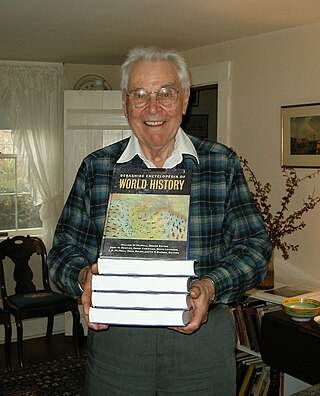
William Hardy McNeill was an American historian and author, noted for his argument that contact and exchange among civilizations is what drives human history forward, first postulated in The Rise of the West (1963). He was the Robert A. Millikan Distinguished Service Professor Emeritus of History at the University of Chicago, where he taught from 1947 until his retirement in 1987.

Claudia Dale Goldin is an American economic historian and labor economist. She is the Henry Lee Professor of Economics at Harvard University. In October 2023, she was awarded the Nobel Memorial Prize in Economic Sciences "for having advanced our understanding of women's labor market outcomes”. The third woman to win the award, she was the first woman to win the award solo.
John Robert McNeill is an American environmental historian, author, and professor at Georgetown University. He is best known for "pioneering the study of environmental history". In 2000 he published Something New Under the Sun: An Environmental History of the Twentieth-Century World, which argues that human activity during the 20th century led to environmental changes on an unprecedented scale, primarily due to the energy system built around fossil fuels.
The following events related to sociology occurred in the 1990s.
John W. Boyer is an American historian and academic administrator. He is Senior Advisor to the President and the Martin A. Ryerson Distinguished Service Professor at the University of Chicago. He served as Dean of the College from 1992 until 2023, making him the longest-tenured dean in the College's history.

Jean Comaroff is Professor of African and African American Studies and of Anthropology, Oppenheimer Fellow in African Studies at Harvard University. She is an expert on the effects of colonialism on people in Southern Africa. Until 2012, Jean was the Bernard E. & Ellen C. Sunny Distinguished Service Professor of Anthropology and of Social Sciences at the University of Chicago and Honorary Professor of Anthropology at the University of Cape Town.
Glenn David McNeill is an American psychologist and writer specializing in scientific research into psycholinguistics and especially the relationship of language to thought, and the gestures that accompany discourse.
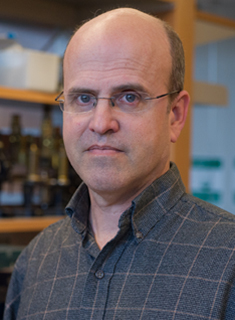
Michael R. Dietrich is a professor of the history and philosophy of science at the University of Pittsburgh. His research concerns developments in twentieth century genetics, evolutionary biology, and developmental biology, with a special emphasis on scientific controversies.
Donald Frederick Lach was an American historian based as a professor in the Department of History at the University of Chicago. He was an authority on Asian influence in the European civilization during the sixteenth through the eighteenth centuries.
Michael Anania is an American poet, novelist, and essayist. His modernist poetry meticulously evokes Midwestern prairies and rivers. His autobiographical novel, Red Menace, captured mid-twentieth century cold war angst and the colloquial speech of Nebraska, while the voice in his volumes of poetry distinctively reflects rural and urban Midwestern life in a "mixture of personal voice, historical fact, journalistic observation and a haiku-like format that pares lines down to the bare bones and pushes language to its limit."
In literary criticism and cultural studies, postcritique is the attempt to find new forms of reading and interpretation that go beyond the methods of critique, critical theory, and ideological criticism. Such methods have been characterized as a "hermeneutics of suspicion" by Paul Ricœur and as a "paranoid" or suspicious style of reading by Eve Kosofsky Sedgwick. Proponents of postcritique argue that the interpretive practices associated with these ways of reading are now unlikely to yield useful or even interesting results. As Rita Felski and Elizabeth S. Anker put it in the introduction to Critique and Postcritique, "the intellectual or political payoff of interrogating, demystifying, and defamiliarizing is no longer quite so self-evident." A postcritical reading of a literary text might instead emphasize emotion or affect, or describe various other phenomenological or aesthetic dimensions of the reader's experience. At other times, it might focus on issues of reception, explore philosophical insights gleaned via the process of reading, pose formalist questions of the text, or seek to resolve a "sense of confusion."
Angus McLaren is professor emeritus of history at the University of Victoria, British Columbia, and a leading historian of sexuality. He earned degrees from University of British Columbia and Harvard University.
Martha Feldman is an American musicologist and cultural historian. Since 1990 she has taught at the University of Chicago where she is Ferdinand Schevill Distinguished Service Professor in the Department of Music and the College. Feldman also holds appointments to the faculty of Theater and Performance Studies and serves as affiliated faculty in Romance Languages and Literatures and at the Center for the Study of Gender and Sexuality. Born in Philadelphia to a family of artists, she studied at the University of Pennsylvania, where she earned her doctorate in Music History and Theory in 1987. She is married to composer and jazz musician Patricia Barber.








